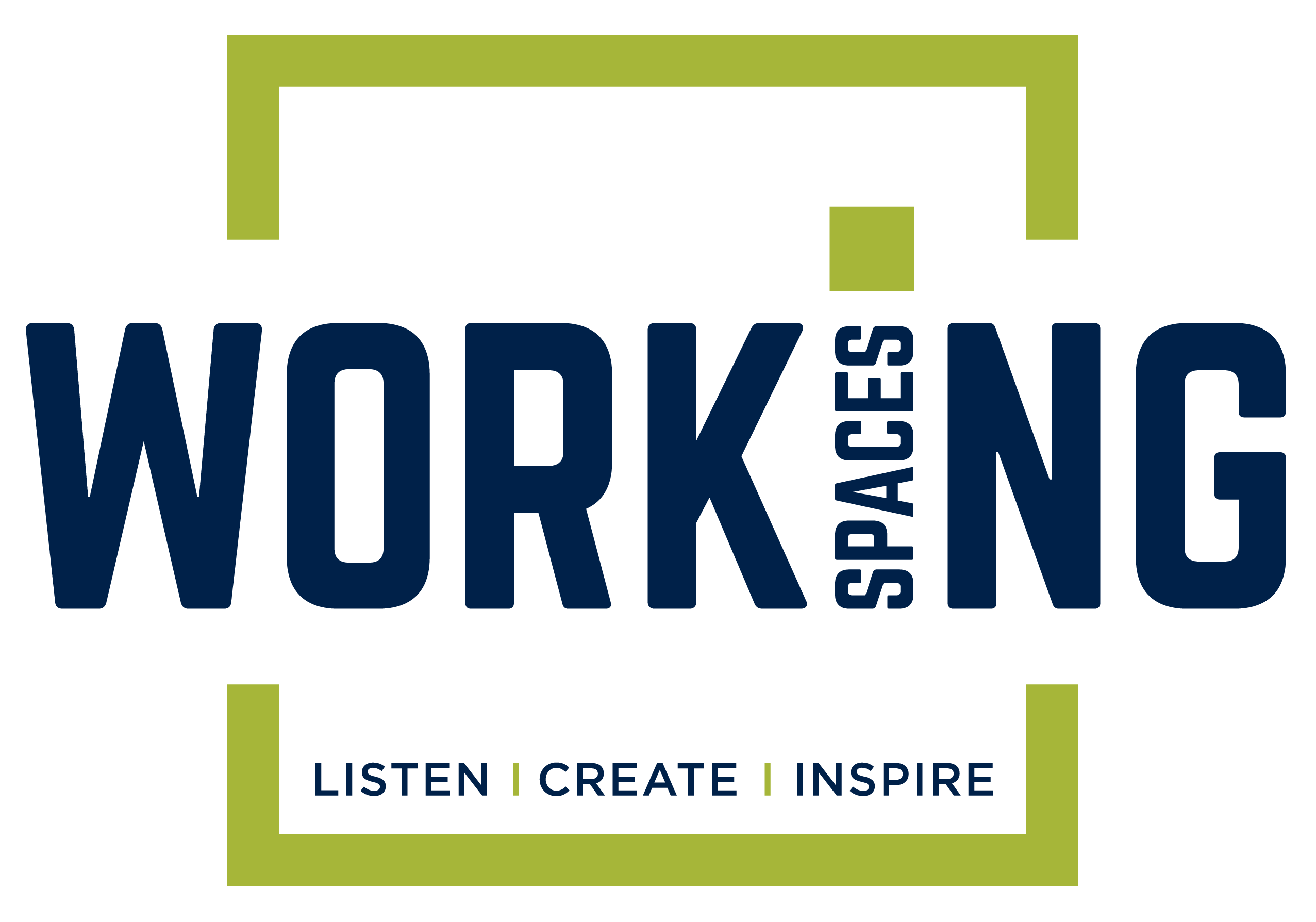Season 2 - Episode 1
Boosting Employee Engagement with Flexible Office Design
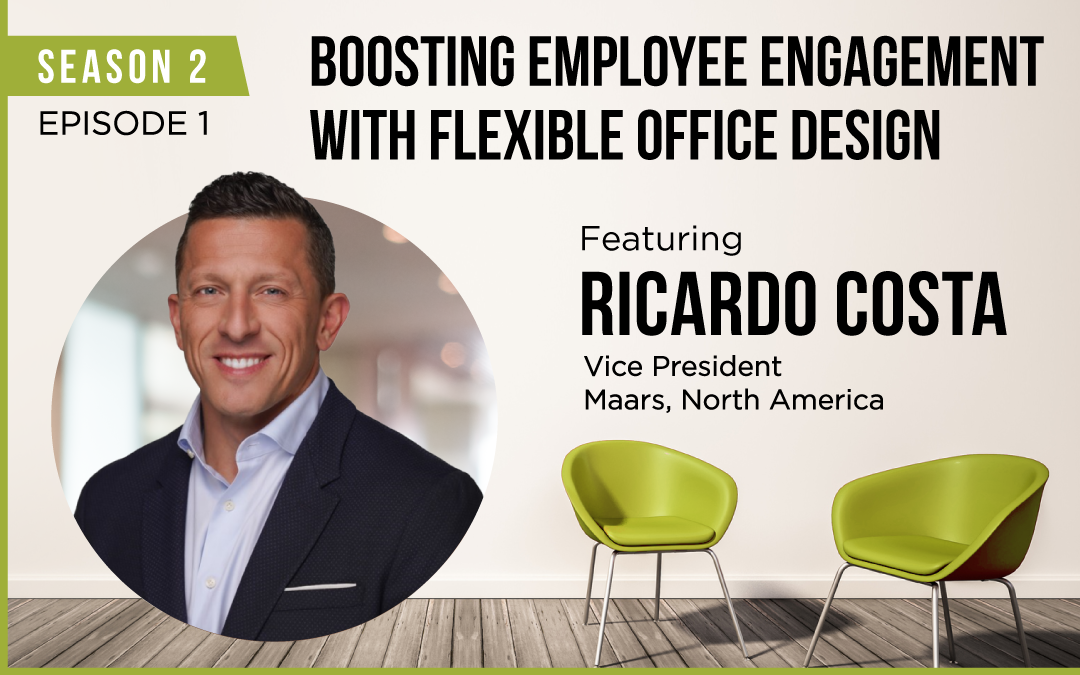
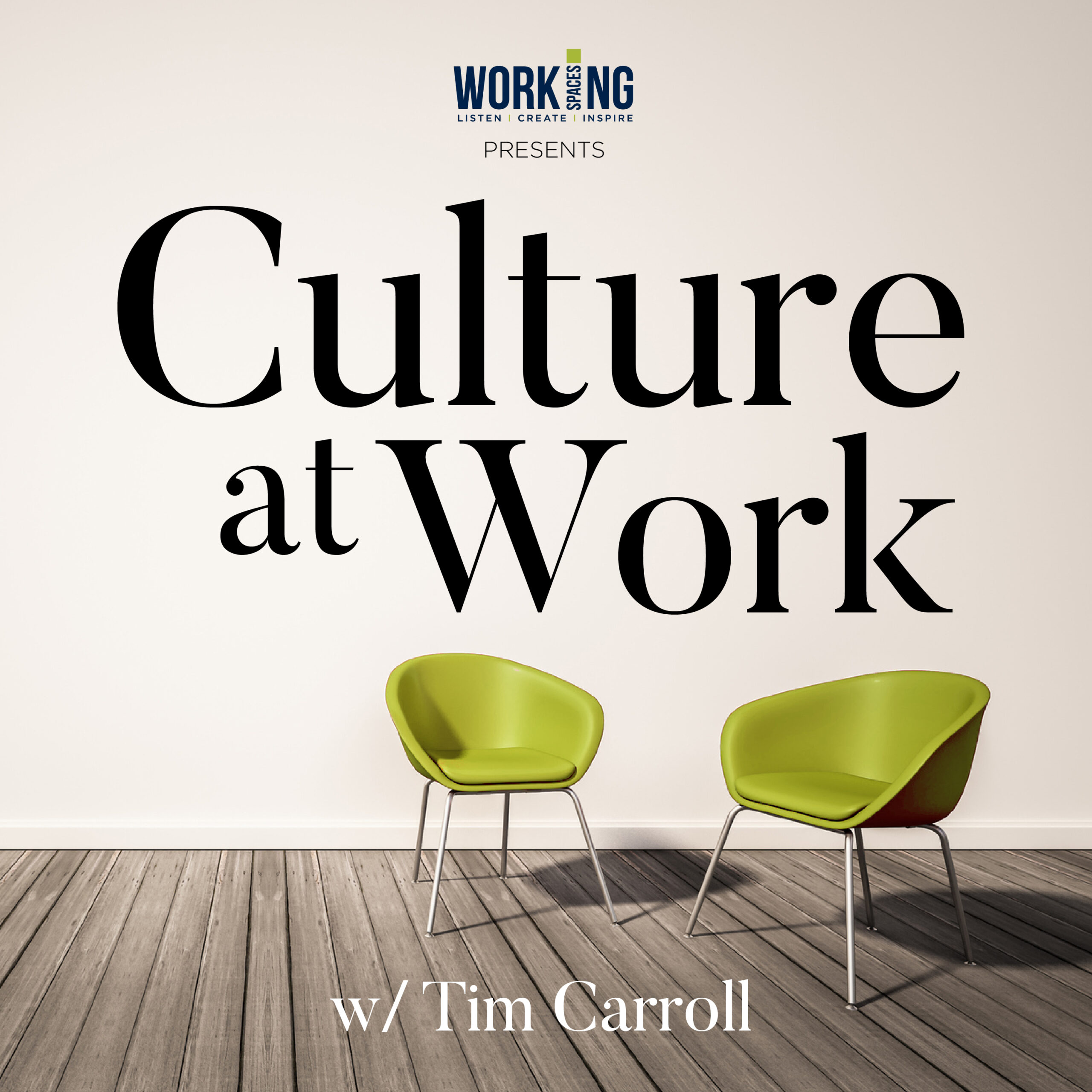
Streaming
HOST
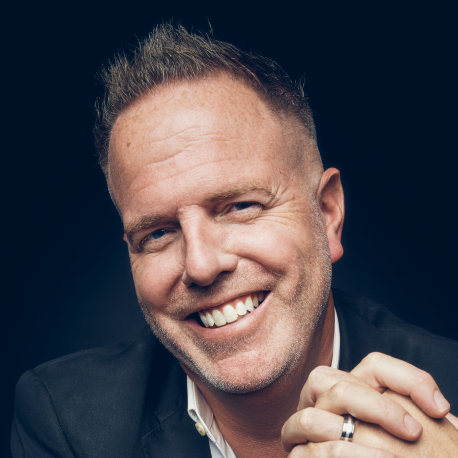
Tim Carroll, COO
Working Spaces
GUEST
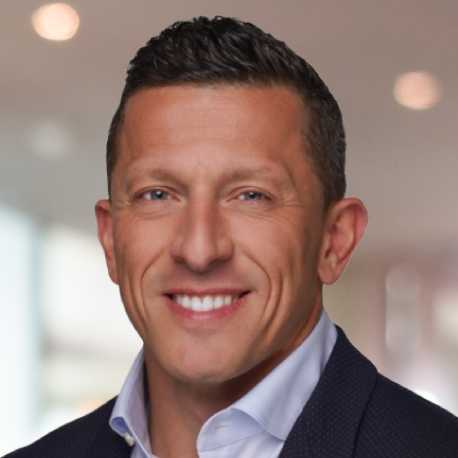
Ricardo Costa
Vice President
Maars, North America
SYNOPSIS
Ricardo explains how these systems create environments that align with a company’s corporate culture while promoting employee well-being. He emphasizes the growing importance of sustainable workplace design, highlighting how Maars’ solutions offer acoustic control, aesthetic customization, and reconfigurability to meet the evolving needs of organizations.
As they delve into the relationship between sustainable office spaces and employee motivation, Tim and Ricardo also discuss how modular interiors can improve the psychological and emotional atmosphere in the workplace, fostering a culture of productivity and positivity. The episode concludes by underscoring the value of partnerships, such as the collaboration between Maars and Working Spaces, in driving workplace innovation and culture.
FULL EPISODE TRANSCRIPT
Ricardo, thank you so much for joining us. I’m very excited about this conversation, and not just because Maars is a trusted partner of Working Spaces, but also because I’ve enjoyed the conversations that you and I have had in the past, and the insights that you bring. I’m just looking forward to sharing that with our audience broadly across the country.
Ricardo Costa:
Thank you, Tim, for having me. I appreciate it.
Tim Carroll:
Of course. Well, we’re going to start like we always do and ask that very important question: How do you define culture?
Ricardo Costa:
Great question. I define culture with a few answers. Culture for a company involves a lot of different things—personalities, how everyone shows up, what they bring to the table in terms of thought and perspective, how much they encourage or challenge others.
The culture at Maars is unique because we’re a global organization based in the Netherlands, with a distributed team here in North America. Everyone has a different background and perspective, bringing unique thoughts and experiences to the table. It shapes our culture, which is defined by hard work, positive challenges, and supporting one another.
Tim Carroll:
I like the idea that culture is the personality of an organization. You mentioned personality, but also thought and perspective. I love the idea of culture being collective thought and perspective. How do you drive culture in such a distributed team?
Ricardo Costa:
It’s a challenge, for sure. We have team members across different time zones—East Coast, West Coast, Central, even in the Netherlands. So, we aren’t necessarily driving culture; we’re encouraging hyper-collaboration, good communication, and positive challenges.
I push the idea that everyone should have a voice, sharing their experiences and communication because we have to rely on that. Everyone defines the culture collectively through hyper-collaboration.
Tim Carroll:
Hyper-collaboration, great phrase. Explain that and what tools you use to encourage it.
Ricardo Costa:
Hyper-collaboration means our team works collectively and relies on each other due to individual roles and contributions. We’re a manufacturer working towards goals with partners like Working Spaces to ensure projects succeed. Everyone plays a critical role, so there’s high participation and commitment across the board.
We’re communicating early and often throughout opportunities, and we do post-project reviews to see what worked well and what could be improved. This over-communication helps ensure we reach our goals.
Tim Carroll:
You touched on three P’s: people, process, product. Let’s focus on the product side. Tell us about Maars.
Ricardo Costa:
Maars is a demountable, modular wall manufacturer based in the Netherlands, in a small town called Harderwijk. It’s a family-owned company that started 75 years ago, originally focused on modular construction for European buildings.
Over time, Maars became a global leader in manufacturing architectural wall systems for various spaces—offices, healthcare, hospitality, education, and more. We’re a global manufacturer with teams in Europe, North America, and Asia, and we focus heavily on acoustics, sustainability, and aesthetic options for clients.
Tim Carroll:
How does modular interior construction affect workplace culture?
Ricardo Costa:
The workplace has changed significantly. We’ve moved from cubicle farms to more collaborative, open environments. Clients now want more connection and collaboration, and they’re asking for more sunlight, which modular interiors can provide.
Architectural wall systems allow more choice and control for the end-user to shape their space to reflect their culture. They can bring in more natural light, improve acoustics for privacy, and reconfigure spaces as needs change. It helps create a positive culture by providing employees with environments that suit their work and emotional needs.
Tim Carroll:
Tell me about research and development at Maars and how it makes your products stand out.
Ricardo Costa:
We have our own in-house R&D team with over 20 years of experience. They bring the European mindset of designing buildings to last over 100 years. They focus on creating robust, sustainable, and adaptable products that enhance a space’s functionality.
Instead of developing new products, we refine our existing portfolio to perform better and offer more choices to clients. We don’t just focus on speed but on creating thoughtful, long-lasting solutions that benefit clients in the long run.
Tim Carroll:
Speed versus quality—what should clients be considering?
Ricardo Costa:
Construction schedules are tighter these days, but it’s important to have thoughtful conversations early in the process. We emphasize approaching projects with care—thinking about culture, function, and sustainability upfront.
Cutting corners for speed can lead to day-two costs, where clients realize issues like poor acoustics or structural problems. It’s crucial to focus on quality from the start to avoid those costs and ensure long-term satisfaction.
Tim Carroll:
Why is fit and finish important to an organization’s culture?
Ricardo Costa:
People take pride in their workspace, and it affects them psychologically. A well-designed, thoughtful space can improve productivity and positively impact an employee’s day, even if they come in feeling off.
The quality of a workspace, from walls to furniture, plays a big role in shaping workplace culture. It creates an environment where people want to do their best work and feel proud of where they spend a large part of their lives.
Tim Carroll:
What’s happening on the coasts that will influence trends in the middle of the country?
Ricardo Costa:
We’re seeing a push for more natural light, open environments, and flexibility in design. Modular interiors are gaining traction because clients want spaces that can evolve with their needs.
On the West Coast, AI and technology are influencing workplace design, and there’s a focus on freestanding architectural options and dynamic spaces. I think we’ll see some really interesting designs in the next few years as companies adapt to changing work styles.
Tim Carroll:
Talk to me about the environmental benefits of modular construction and how it affects the organization.
Ricardo Costa:
Sustainability is top of mind for many companies now, and modular interiors offer a more sustainable solution compared to traditional construction. They minimize waste, can be reconfigured instead of demolished, and have fewer environmental impacts overall.
Maars has always embraced sustainable practices, using recyclable materials and focusing on the health of spaces. Modular systems provide flexibility and longevity, helping companies achieve their environmental goals while creating healthier work environments.
Tim Carroll:
How does workplace design impact employee health?
Ricardo Costa:
Workplace design impacts emotional, physical, and cognitive health. Factors like light, sound, and the ability to find quiet spaces for focused work all contribute to employee well-being.
Maars’ products are designed with these factors in mind, ensuring that spaces are not only functional but promote a healthier work environment for employees.
Tim Carroll:
How important is a local partner, like Working Spaces, to the success of Maars?
Ricardo Costa:
A local partner like Working Spaces is essential. They provide critical support around sales, design, and project management, and they are true partners to the client. They help ensure that every stakeholder is happy with the final result, and they give us feedback on what the local market needs.
It’s a two-way relationship where we learn from each other to deliver the best solutions for clients. Working Spaces has been one of our longest partners in North America, and their commitment to excellence is unmatched.
Tim Carroll:
As advertised, you exceeded even my expectations. The insights are really great. We’re just so proud of the partnership we have with Maars and look forward to many more years of working together. Thank you so much for your time today.
Ricardo Costa:
You’re welcome, Tim. Thank you for having me, and we appreciate all your partnership and everything that you do as well.
More Episodes
Marketing, Branding, and the Culture Connection
How does branding influence not just external perception, but the very culture of a company? In this episode of Culture at Work, Tim Carroll sits...
Rewiring Workplace Culture: A Brain-Based Approach with Lisa Marini
How does your brain shape workplace culture? In this episode of Culture at Work, Tim Carroll sits down with Lisa Marini, a Brain-Based Performance...
Beyond Furniture: How Working Spaces’ Client Experience Elevates Corporate Culture
In this episode, host Tim Carroll sits down with Vicki McGuire, Vice President of Client Experience at Working Spaces. Join us as we explore how...
